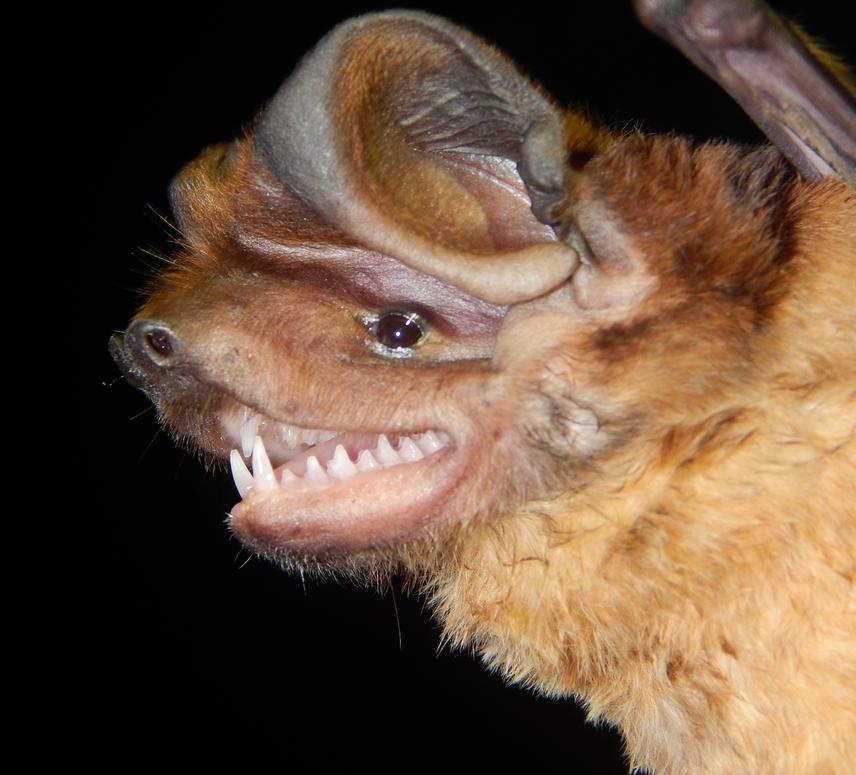Aída Otálora-Ardila
Rice (Oryza sativa), one of the most important foods worldwide, is increasing in the tropics through several agricultural practices. The intensification of the current monoculture model of rice farming has led to an increase in the use of synthetic pesticides and fertilizers, generating negative impacts on biodiversity. Organic farming is considered an environmentally friendly strategy because sustains a higher level of biodiversity and its associated ecosystems services compared to conventional agriculture.

Wagner´s bonneted bat (Eumops glaucinus) a typical aerial insectivore bat species from the Colombian Llanos. This species has an important role as insect suppressor. © Aída Otálora Ardila
To understand how the quality of different agri-environment systems supports biodiversity, few studies to date have used the empirical evidence provided by taxonomic diversity. However, recent research has highlighted the importance of combining functional and phylogenetic diversity data to predict more precisely the impact of human-modified landscapes on biodiversity.
Our research will take place in the Colombian Llanos, an important region to conduct ecological research and conservation actions in Colombia. Species respond differently to agriculture systems depending on their traits. Therefore, we will investigate how insectivorous bat species respond to conventional and organic rice agriculture from a functional, phylogenetic, and taxonomic perspective. We will test the general hypothesis that conventional agriculture negatively affects ecosystem functioning to a greater extent, therefore, multiple dimensions of bat biodiversity will be lower in conventional than in organic fields. We will survey bats using acoustic monitoring and mist-nets in organic and conventional farming, preserved savannahs, and remnant forests.
This project will provide insights into which agricultural practices would be more beneficial for preserving bat biodiversity and their associated pest suppression services. Furthermore, in addition to improving our understanding of the mechanisms governing the relationships between biological and environmental traits, this project will provide novel insights into the functional and phylogenetic dimensions of biodiversity. Also, It will highlight the conservation value of complex landscapes in farmland, especially where protected areas are lacking.